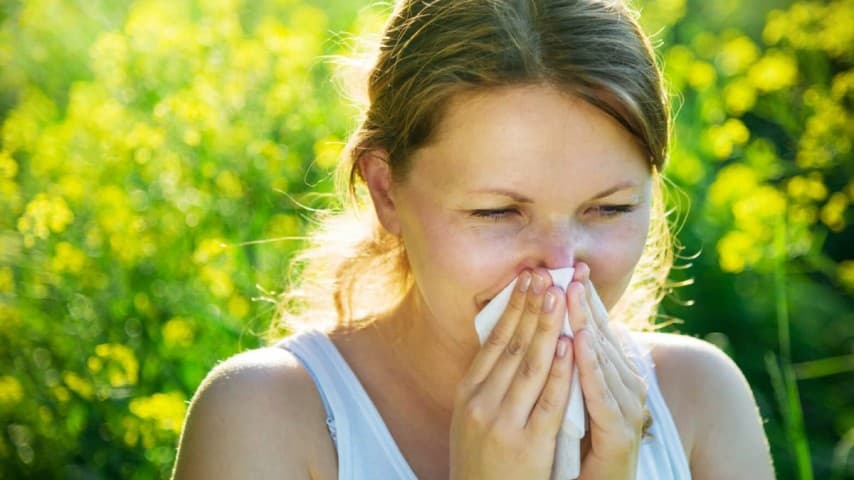108 Glen Osmond Road, Parkside

One in every five people on earth suffer from hay fever/pollen allergy. Contrary to its name, hay fever doesn’t occur specifically from exposure to hay and you wouldn’t have fever because hay fever isn’t caused due to bacteria or virus. It eventuates due to the hypersensitivity of your body’s immune system. When the body becomes hypersensitive, it produces an allergic reaction on exposure to foreign particle such as pollen, dust mites, mold spores and pet dander. Hay fever may intervene your daily tasks and can affect your productivity humongously. Many people resort to allopathic treatment in order to put their allergy to rest. But, allopathy bestows them a short term relief and the hay fever reoccurs with aggravated symptoms.
Early descriptions of sneezing, nasal congestion, and eye irritation while harvesting field hay promoted this popular term. Allergic rhinitis is the correct term used to describe this allergic reaction, and many different substances cause the allergic symptoms noted in hay fever. Rhinitis means "inflammation of the nose" and is a derivative of rhino, meaning nose. Allergic rhinitis that occurs during a specific season is called "seasonal allergic rhinitis." When it occurs throughout the year, it is called "perennial allergic rhinitis." Rhinosinusitis is the medical term that refers to inflammation of the nasal lining as well as the lining tissues of the sinuses. This term is sometimes used because the two conditions frequently occur together.
Symptoms :
In severe conditions, the patient may experience:
If these symptoms are left untreated for a long time then they may lead to diseases like chronic allergic conjunctivitis, nasal polyps, sinusitis and even asthma. Hence it is very important to treat them before it gets worse.
Signs and symptoms can be similar, so it can be difficult to tell which one you have.
| Condition | Signs and symptoms | Onset | Duration |
|---|---|---|---|
| Hay fever | Runny nose with thin, watery discharge; no fever | Immediately after exposure to allergens | As long as you're exposed to allergens |
| Allergic Rhinitis | Runny nose with watery or thick yellow discharge; body aches; low-grade fever | One to three days after exposure to a cold virus | Three to seven days |
Causes of Hay Fever or Allergic Rhinitis :
It’s actually caused by normally harmless and naturally occurring substances that trigger allergic reactions in your body. These substances are called ‘allergens’ and different allergens affect different people.
Allergens outdoors - Outdoor allergens include mould, trees, grass and pollens, and the condition they cause is often referred to as ‘seasonal or perennial hayfever (allergic rhinitis)’. If you suffer in spring, you are probably allergic to tree pollens and if your symptoms are present in summer, grass and weed pollens are probably the culprits.
Allergens indoors - If your hayfever occurs all year round, it could be due to indoor allergens. These include dust mites, cockroach droppings and animal dander (flaky skin). If this sounds familiar, you could be suffering from ‘perennial’ or ‘year round’ hayfever.
Ayurvedic View and Treatment :
Allergic Rhinitis from an Ayurvedic perspective is caused due to the ama (toxins) present in the body and due to low immunity. Accumulated ama aggravates the levels of Kapha in the body, giving rise to different symptoms of allergies. In Ayurveda, such allergies are thought of being caused due to hypersensitivity of the nervous system. Thus vitiation of all the three doshas are found in this condition.
Symptoms :
In acute attack, suddenly the patient suffers from cold with running nose, red and itchy eyes, and sneezing.
Ayurvedic Herbal Treatment of Hay Fever or Allergic Rhinitis :
Ayurveda, the age old Indian science of healing makes use of the inherent power of natural herbs to prepare medications that can provide relief from allergies naturally.
Ayurvedic Herbs and Herbal Formulations used :
Tips To Prevent Hay Fever/Pollen Allergy :
Contact expert Ayurvedic doctors at Life Line Ayurvedic Herbal Clinic to get Natural treatment of your Hay fever & Allergic Rhinitis symptoms.
Disclaimer : Sandeep Kumar and Anupam Vasudeva are not GP, they have Ayurveda medical degree from India where it is considered equal to any other medical degree. This qualification is recognized in Australia by vetassess governing body as Complementary Health Therapists. Life Line Ayurvedic Herbal Clinic does not claim to cure a disease or terminal illness and does not create any unreasonable expectation of beneficial treatment. Ayurvedic medicines and treatments are generally considered to be safe but rarely may be associated with possible adverse reactions in individual cases. We recommend seeking urgent medical attention in the case of an adverse reaction. This website provides you with information. You must contact your Ayurvedic or another health professional before you apply them. Read More